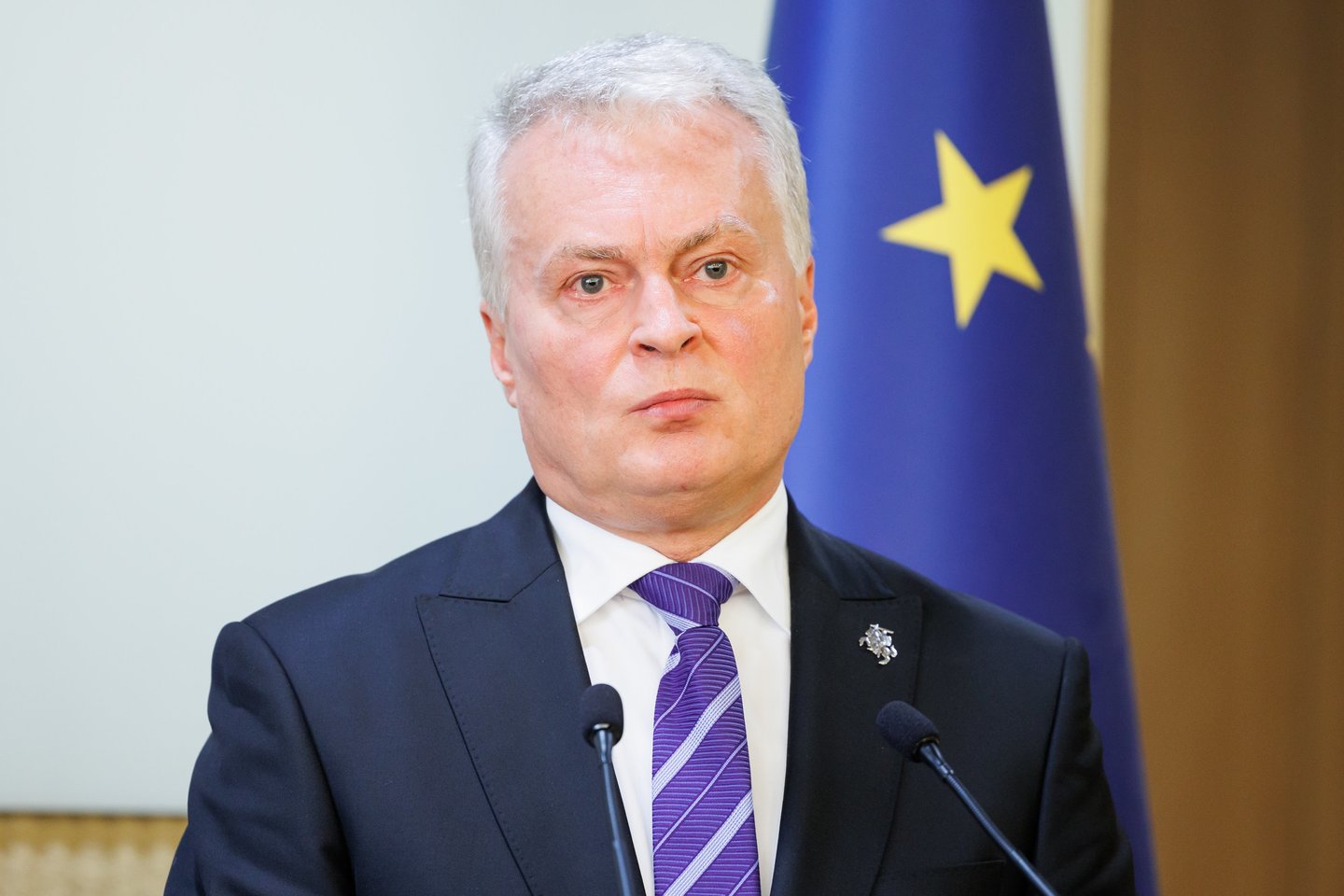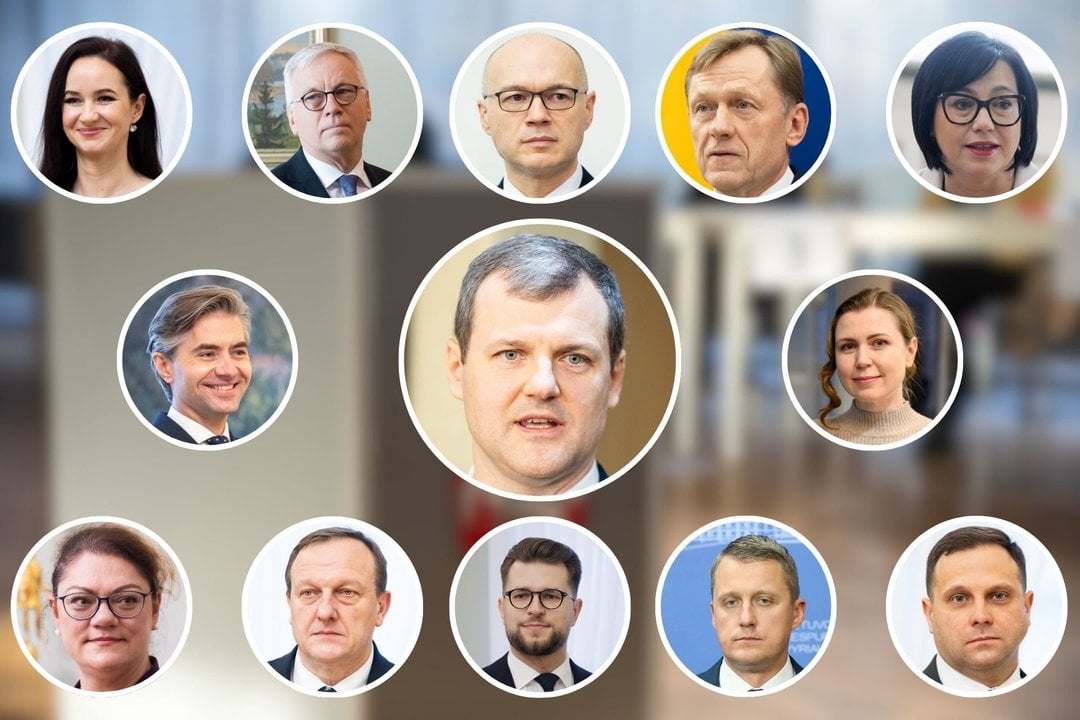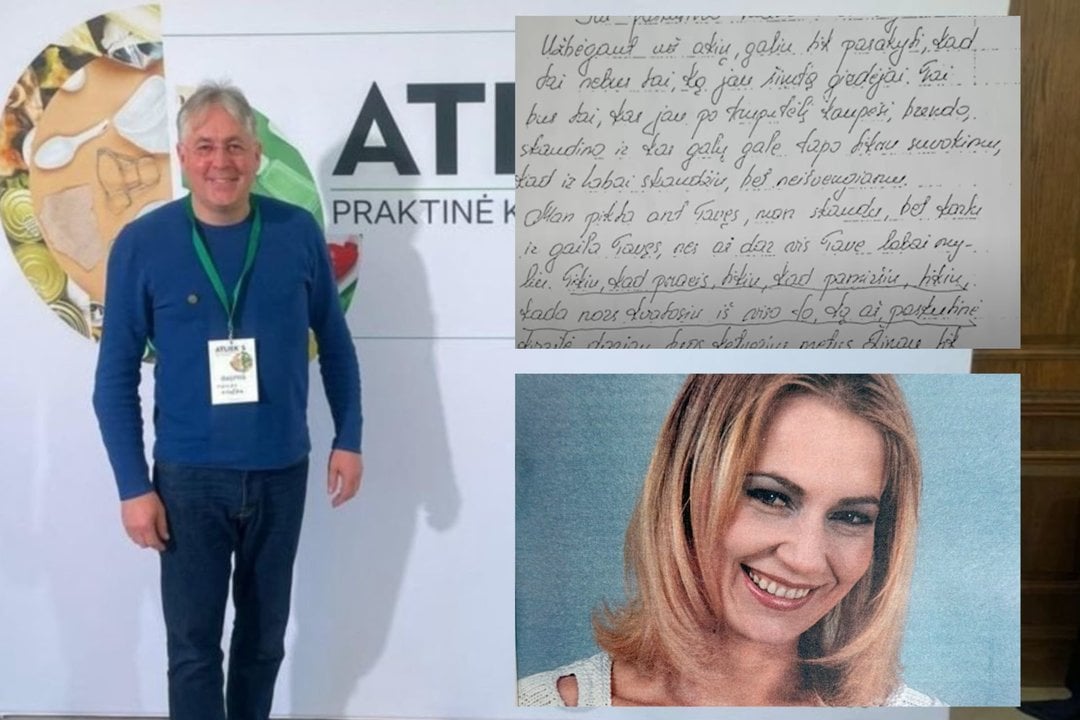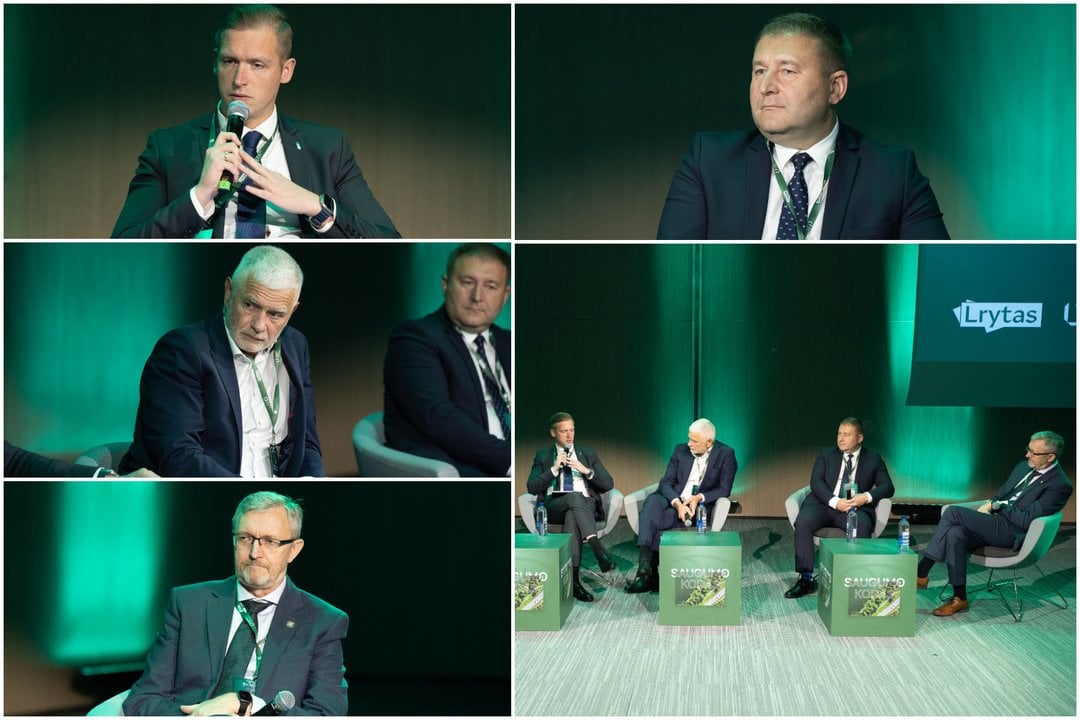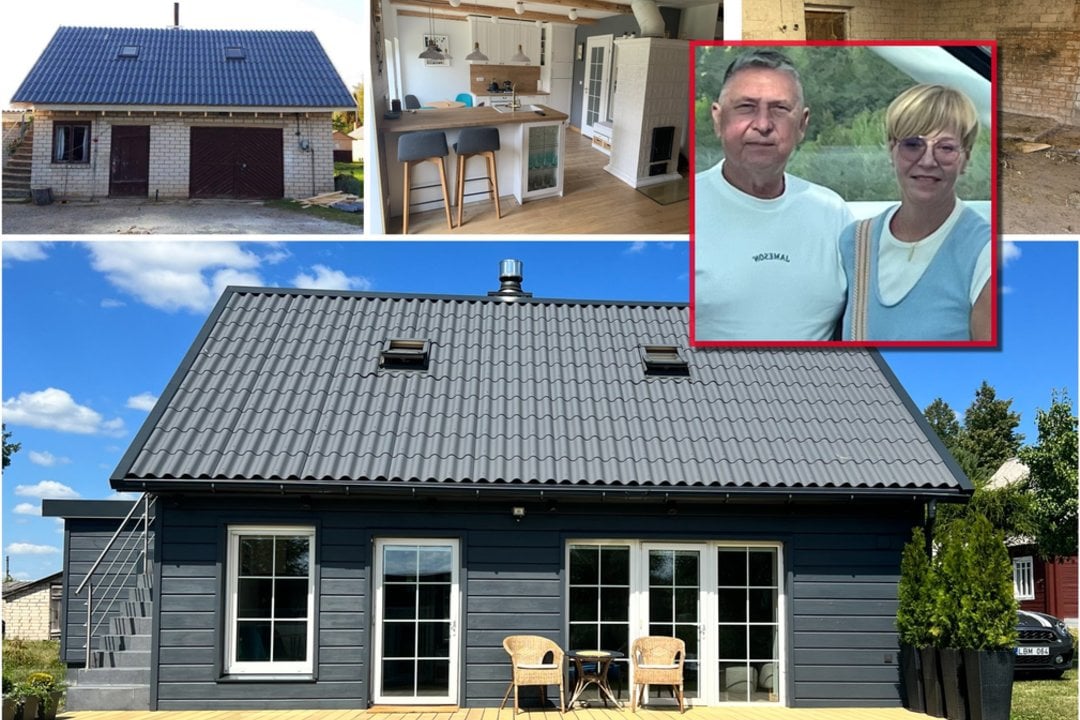„Today, we adopted a joint statement on enhanced cooperation in defence, security and resilience to demonstrate our confident posture to our societies, organisations, businesses and our NATO allies. Strengthening security and defence remains our top priority in the Baltic States,“ Nausėda told reporters on Friday.
„Together, we will continue to advocate for a defence spending target of 3% of GDP (gross domestic product – ELTA) at the upcoming NATO Summit in The Hague. Achieving this target is essential to ensure the credible deterrence and defence of NATO's eastern flank, and thus of the alliance as a whole“, he said.
The President recalled that Lithuania's defence spending will reach 3.5% of GDP next year. Lithuania will also provide 0.25% of GDP in military aid to Ukraine, which, as the Head of State stressed, is fighting for the freedom of all of us. „We are strong supporters of Ukraine. We will continue to keep up our steady pace by contributing 0.25% of our GDP annually to military support to Ukraine in its fight for freedom. Ukraine's victory will be our victory,“ the President noted. The Lithuanian leader also stressed the importance of critical infrastructure protection and a coordinated allied response to Russian hybrid attacks.
„Russia is stepping up its kinetic operations and sabotage actions on NATO territory. This calls for concrete, strong and united responses at the EU and NATO levels and increased efforts to protect critical infrastructure. We need to curb Russia's sabotage campaign in Europe“, said Mr Nausėda.
Estonian President Alar Karis stressed that Russia remains the most significant direct threat to Euro-Atlantic security, adding that its aggression will not stop unless it is met with strong and united resistance. He calls on NATO partners to pay attention to this and to increase defence spending.
„ NATO is strong when the United States and Europe are strong together. Estonia will continue to invest more than 3% of its GDP in defence, and we call on all our allies to do the same. Only a credible capability will deter our adversaries,“ underlined Mr Karis.
Latvian leader Edgars Rinkēvičs welcomed the fact that the Baltic countries are not only discussing increased defence commitments but are also setting an example to their NATO partners on how to achieve this.
„We all agree that 2% of GDP is not a ceiling now; it is just a floor. We need to talk about 2.5% and 3%. I am very pleased that all three Baltic countries are encouraging other countries to follow our example,“ said Edgars Rinkēvičs.
Baltic countries to urge NATO partners to focus more on defence
The Baltic leaders call on NATO partners to continue implementing forward defence in our region, including large-scale exercises. The Presidents also encourage NATO members to invest more than 3% of their GDP in defence capabilities.
„We reaffirm our commitment to invest more than 3% of GDP in our defence capabilities, calling on NATO Allies and EU Member States to do the same and to decide to set a new higher target for defence spending by NATO Allies so that they can meet critical shortfalls, strengthen their defence industries and increase their resilience to Russian expansionism,“ the presidents' statement read.
The presidents of Lithuania, Latvia and Estonia underline the need to create a Baltic defence line in coordination with Poland's Eastern Shield project.
„EU and NATO priority attention and investment is essential to rapidly strengthen the security of the Baltic region's EU-NATO borders and defence architecture. In addition, we call for enhanced military mobility both into and within the region,“ the Baltic leaders note.
In the statement, the Heads of State underline their commitment to allocate at least 0.25% of GDP annually to Ukraine's military assistance, to support the European Union's joint initiatives in support of Ukraine, and to support Ukraine's efforts to become a NATO member. The Presidents will also call on the international community to support Ukrainian President Volodymyr Zelensky's victory plan.
„We call on the international community to strongly support the Peace Formula proposed by President Volodymyr Zelensky, which emphasises Ukraine's sovereignty and territorial integrity and the responsibilities of Russia. We support President Zelensky's Victory Plan for a just and sustainable peace,“ the statement reads.
The programme of the future Lithuanian Government states that funding for national defence will be at least 3.5% of GDP and promises continuity of work, with particular emphasis on the deployment of the German Brigade in Lithuania. According to the programme, the German troops are scheduled to arrive in Lithuania in 2027.
The Presidency has previously warned that, according to the army's assessment, the division to be established in Lithuania will not reach full operational capability by 2030. If the situation in the defence industry remains unchanged and funding for national defence is not increased, the division will not reach operational capability until 2036–2040.
